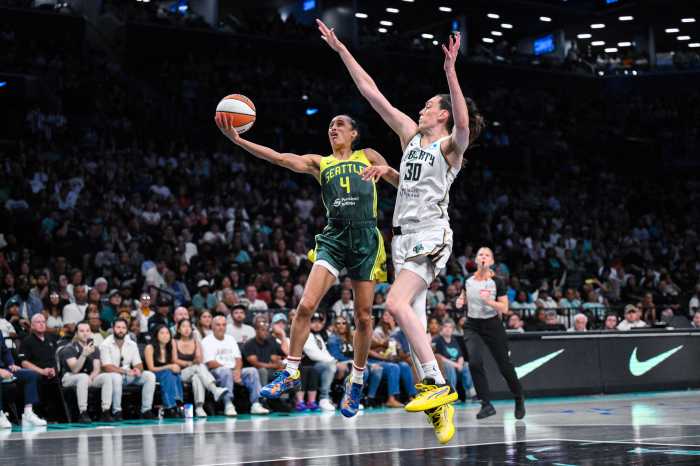Queens was a footnote buried in most obituaries written about Supreme Court Justice Antonin Scalia following his death last weekend in Texas at 79.
But for the brilliant and conservative jurist, the borough was not a forgotten chapter in his life story.
Scalia, who was born in Trenton and moved to Elmhurst at the age of 6, described his idyllic childhood days playing stickball and street hockey with a diverse group of friends in interviews with New York Magazine and “60 Minutes.”
The only son of Sicilian immigrants, Scalia marveled at the polyglot of Greeks, Irish, Germans, Jews and Italians in his class at PS 13. “It was the face of New York City,” the former straight-A student said.
He was “Nino from the Neighborhood” in the 1940s as his contemporary, Mario Cuomo, another young Italian, started his journey into public life from his Sicilian father’s grocery store in South Jamaica.
Scalia the conservative became the first Italian to serve on the Supreme Court and Cuomo the liberal was elected governor of New York, where he flirted with running for president and turned down an offer from President Clinton to sit on the court.
Asked where he was from, Scalia invariably responded “Queens!” with great pride, according to colleagues, while Cuomo frequently invoked the borough as the touchstone of his bio.
When Scalia visited his old attached house on a cul-de-sac in Elmhurst some years ago, he must have rued the loss of diversity that shaped his youth. Today the community is predominantly Asian with a few Latino speakers tossed into the mix.
Scalia, who wrote many of the court’s dissents to the majority decisions, never gave up his quest for diversity. When his fellow justices ruled in favor of same-sex marriage in 2015, an unhappy Scalia criticized the elite makeup of the court in his dissent and said the next members should not be “tall-building lawyers” from New York City. The nine justices, including Scalia, graduated from either Harvard or Yale law schools and four are from New York City.
Of the New York delegation, it is not surprising that Scalia was the conservative, since Queens is known for being less liberal than Manhattan, Brooklyn or the Bronx. But in a sign that even the constitutional hero of the conservatives could reach across the bench, Scalia’s closest friends on the court were the liberal Justices Ruth Bader Ginsburg (Brooklyn) and Elena Kagan (Manhattan).
Now that Scalia’s death has further polarized the political establishment, both sides should take note that the guy from Queens could make peace—at least socially—with the enemy.
































